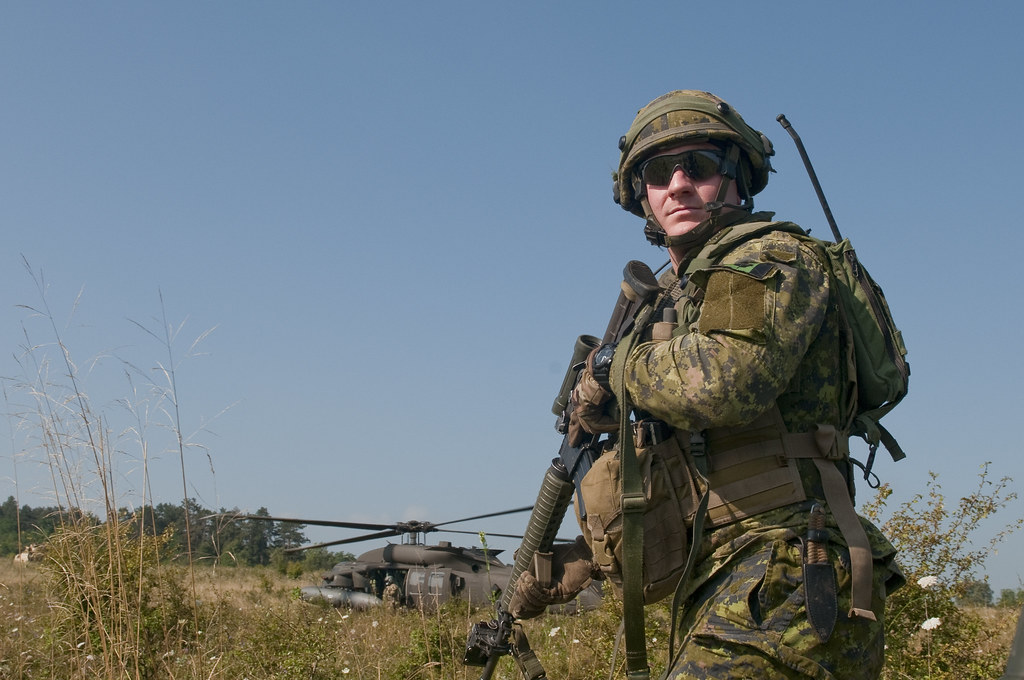On Friday, September 25, The Network for Strategic Analysis (NSA) organized the first panel of a cycle of 5 workshops on capacity building in the COVID-19 era. It was moderated by Theodore McLauchlin, Associate Professor in the Department of Political Science and Director of the Center for Studies on Peace and International Security (CIPSS) at the University of Montreal. The panel included two speakers: Renanah Miles Joyce, Postdoctoral Fellow in Grand Strategy, Security, and State Art in the International Security Program at Harvard Kennedy School and, jointly, in the Security Studies Program at the Massachusetts Institute of Technology; and Linnéa Gelot, associate professor in peace and development studies and senior researcher at the Folke Bernadotte Academy.
Focusing on the impact of the pandemic on capacity building activities, the panel gave rise to a lively discussion on the multiple questions that capacity building already raised before the pandemic, and on how COVID-19 is affecting them today. This ‘hot take’ summarizes the highlights of that exchange.
Capacity Building Before COVID-19
Capacity building is a form of security cooperation through which an actor transfers technical capacities and knowledge to another actor in order to improve the skills of the latter’s armed forces to effectively face the challenges of peace and security, capabilities. This has become over the years an important foreign policy tool for several Western countries. It presents itself as an alternative means of contributing to international peace and security, a means that involves less risk and cost than the alternative of direct large-scale deployment. According to Theodore McLauchlin, who is currently working on a project called Politics of Foreign Military Training where he examines the political impacts of international military training, it is therefore a means of getting involved abroad without paying a heavy price. Several objectives underpin these capacity building operations: military performance, the fight against insurgency, counter-terrorism, respect for human rights, and democratization.
Before the pandemic, capacity building was also an opportunity for ‘provider countries’ to extend their influence in ‘recipient countries.’ Indeed, through training activities, the armed forces conducting the training had the opportunity to interact with and socialize their recipient counterparts. For Renanah Miles Joyce, whose book project Exporting Might and Right: Great Power Security Assistance and Developing Militaries focuses on the effectiveness of security assistance as a tool of great powers to shape norms and behavior of militaries in small states, it is therefore a springboard for easy dissemination of the provider’s values and interests. For some authors, states that receive military training from the United States – for example – easily develop a pro-American vision. Certain standards such as liberalization, respect for human rights, reduction of repression would thus be accepted more easily by recipient countries. However, this point remains debated in the literature.
In addition, the literature and discussions among professionals also focused on issues such as the impact of capacity building activities on coups d’état; the usefulness of these activities in the context of authoritarian or corrupt governments; or the effect that the multiplicity of providers can have on the ability to carry out a coherent transfer of standards and practices – depending on whether they are acting in a logic of coordination or competition. COVID-19 therefore extends the list of questions to be asked about capacity building.
The Disruption Caused by COVID-19
One of the first consequences of this pandemic is the economic hardship it has caused on a global scale. With economic difficulties come budget cuts and recalibration of priorities and emergencies. Thus, the first question that arises is, to what extent capacity building will remain a priority for provider states. While this was a cheaper way to achieve certain international security goals, the paradox that arises is that with the pandemic, its value may change. For Theodore McLauchlin, capacity building would no longer be absolutely a priority in the current context – of economic crisis and internal emergencies – for certain powers that were involved in this kind of activity. On the other hand, the low cost of capacity building, compared to other forms of intervention, may make it more attractive in an era of economic damage and shrinking budgets. Indeed, the United States, Canada, and the United Kingdom have canceled or reduced some training activities since the start of the pandemic, while others like China, Russia and France have not.
According to the panelists, capacity building activities could also be limited to core activities. But, what activities will be considered essential? Geopolitical interests could become another element likely to tip the scales: choices could then be made according to criteria such as gaining ground, extending or maintaining influence, sending a message to adversaries about our capabilities. For example, we observe that some providers, such as China and Russia, have continued military training activities despite the pandemic, just as France did under Operation Barkhane in the Sahel.
In addition, COVID-19 poses the problem of restrictions on movement and physical contact. Limits to the movement of the training or recipient armed forces raise the possibility of conducting instruction remotely. But, according to Renanah Miles Joyce, problems arise with the lack of technological infrastructure in some developing countries and regions, the accentuation of the difficulties posed by language barriers, and the hindrance to the process of socialization which is important to Western providers. Also, strategic training could suffer more than tactical training with distancing measures: it usually takes place in classrooms (not in the open air). In addition, its emphasis on deepening people-to-people bonds between officers from different countries is particularly difficult to maintain with the move to online courses.
The discussion on capacity building in the COVID-19 era was also an opportunity to visit alternative security management instruments. Linnéa Gelot, whose current project is called African Union Waging Peace, raised this point from the framework of peacekeeping operations. Gelot recalled that, that, in a context of crisis of multilateralism and lack of coordination between state powers, several peacekeeping missions have been forced to downsize or stop – this is the case in Congo, Haiti, in Darfur and in Liberia. Gelot underlined that now political (mediation) missions are increasingly put forward to the detriment of military deployments, and that operations focus more on essential tasks rather than on the multiple dimensions which are more suitable to help people affected by conflict. This trend which predates the pandemic could therefore intensify in the current context of the health crisis. Likewise, declining Western investment in capacity building could create an opportunity for regional initiatives, whether in capacity building or peacekeeping operations, to develop further. This could be an opportunity for international organizations and great powers to encourage regional initiatives.





Comments are closed.